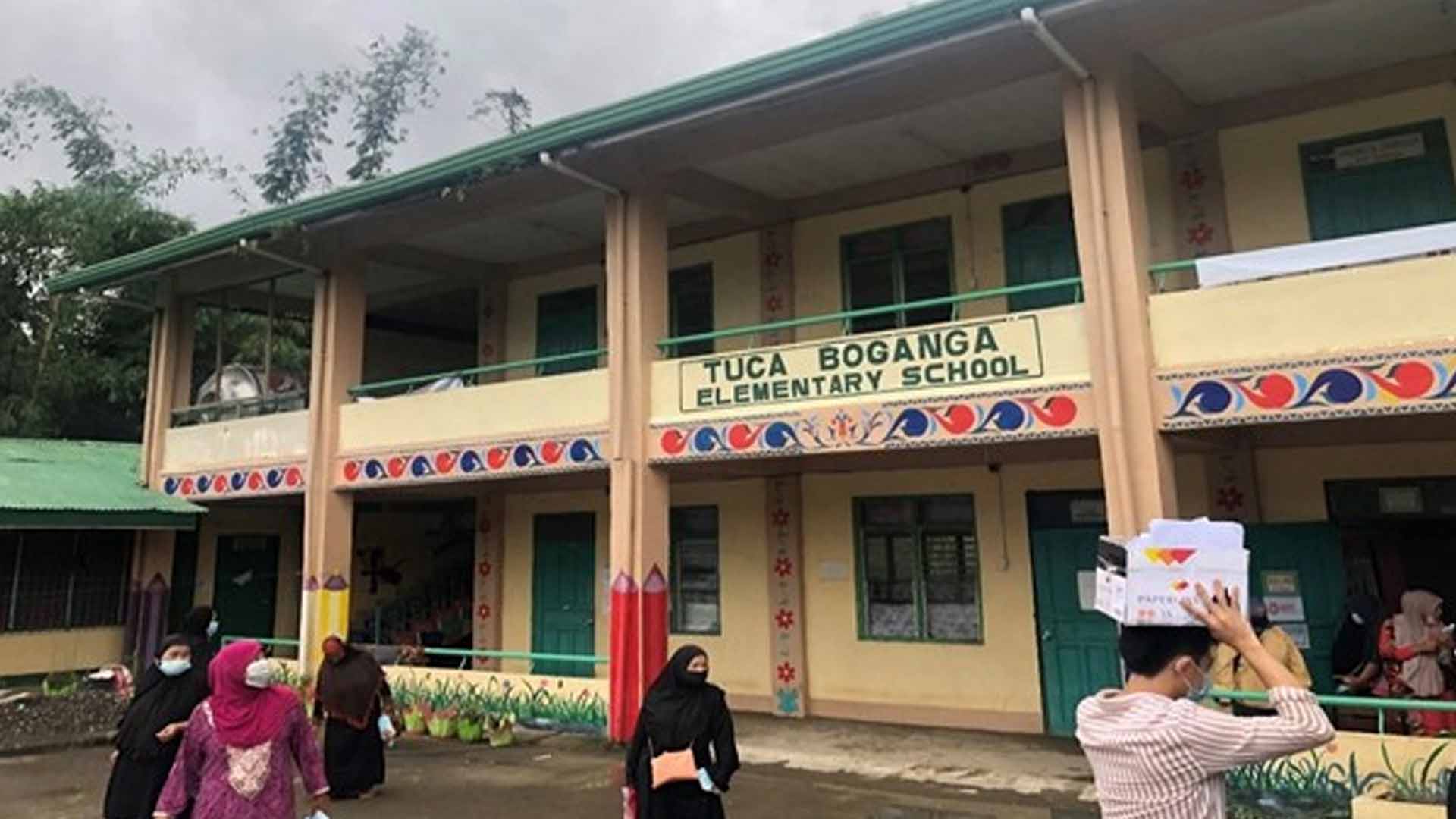Wednesday is a happy day for both teachers and young students in an elementary school in Marawi City. It is the one day in the week when some learners return to the classrooms where they are taught to read and, for the first time in more than a year, they get to interact with their teachers in person.
The once-a-week sessions are done with strict compliance to health and safety protocols and with a very limited number of children. In a city that was ruined by a five-month battle between Philippine military forces and the Islamic State-linked Maute group in 2017, the reading program offers hope to the children of Marawi, many of whom are forced to skip school to support their families.
“It is common to see children working, selling fish or vegetables up to 9:30 pm. This is why many of them are slow or non-readers and some of them just drop out of school,” says Jaylilah Dirampa, the principal of Tuca Bonganga Elementary School and one of the reading teachers.
Dirampa and some teachers in the school created a program called “May Pagasa sa Pagbasa” (There is Hope in Reading) to mentor slow and non-readers among Grades 1-4 students way back in 2016. The tutorials, carried out in both English and Filipino, were done for an hour everyday after the students’ last class with the learning modules made by the teachers themselves.
But the program was stopped in 2017 during the Marawi siege and only resumed in April this year.
Now the tutorials are conducted by five teachers every Wednesday for three hours for a limited number of Grades 1-4 students who can go to the school. For those who cannot make it, there are seven volunteer parents who help distribute the reading modules to the learners in their homes.
The teachers use the Marungko approach to teach non-readers by making them pronounce the sounds of the letters of the alphabet and using songs and poems to do it. They use CVC or consonant-vowel-consonant words to help teach slow readers, again focusing on the proper sounds of the vowels and consonants in pronouncing words.
“The most challenging part so far is trying to get the materials we need. Sometimes even bond papers, pencils and coloring materials are hard to find. Due to the siege, we also lost a lot of books,” says Dirampa.
‘Extra education’
Despite the difficulties in implementing the program, the parents of the children are thankful for the additional learning their kids are getting.
“I’m happy for the extra education that my child is receiving,” says Rasmia Ibrahim whose Grade 1 daughter Soaira is attending the reading sessions. “I know there are many non-readers, but my daughter is fortunate to be able to read already and the program helps.”

Marawi is one of the 421 local government units that work with Synergeia Foundation in improving the quality of basic education in the Philippines in partnership with the United Nations Children’s Fund supported by the Government of Japan.
Synergeia held virtual workshops in May, led by Synergeia President and CEO Milwida Guevara, to help teachers in Mindanao teach children how to read properly and become independent readers.
Reading is crucial to learning because if children cannot read properly and cannot comprehend what they are reading, they would not be able to grasp all the other subject areas including mathematics and science where reading is a primary requirement, Guevara told the workshop participants then.
As the coronavirus pandemic shut schools and online learning has been limited to urban areas with steady Internet access, many children have struggled with learning essential competencies such as reading.
Even before the pandemic hit, Philippine students have fallen behind their international counterparts, highlighting the learning gaps in the country’s education system that the health crisis may have exacerbated.
Only 10% of Filipino Grade 5 pupils had achieved the reading literacy skills expected at the end of primary school, versus 82% in Vietnam and 58% in Malaysia, according to the 2019 Southeast Asia Primary Learning Metrics study released last year by UNICEF and the Southeast Asian Ministers of Education Organization.
Through the program, the Marawi teachers hope they can help improve the reading proficiency of their grade school pupils. And notwithstanding the lack of learning materials and other issues, Dirampa is happy to be running it and seeing students in the classroom again.
“Wednesday is our happy day and we call it our joyous day. Teaching is not only my profession, it is my life,” she said.






















